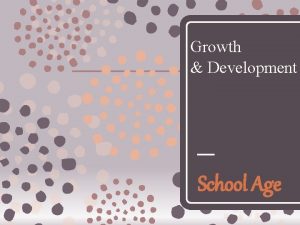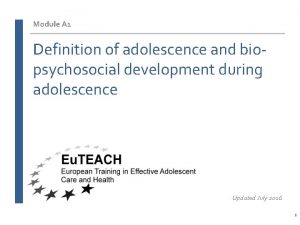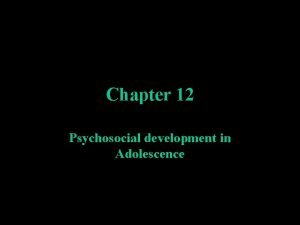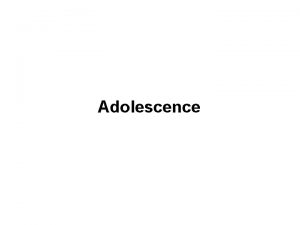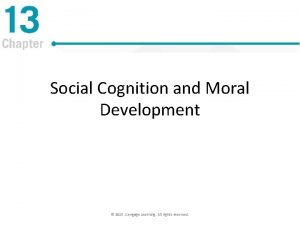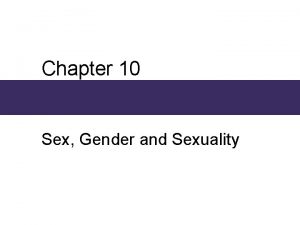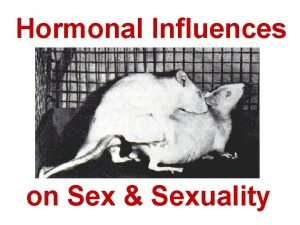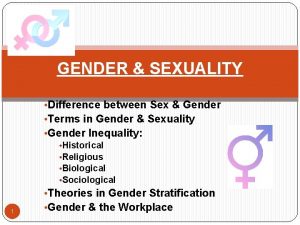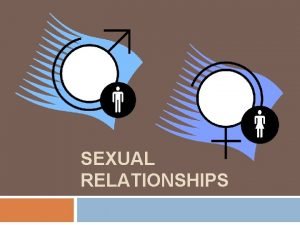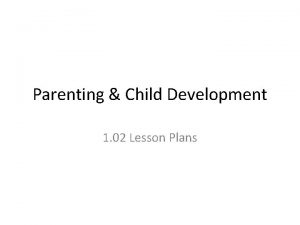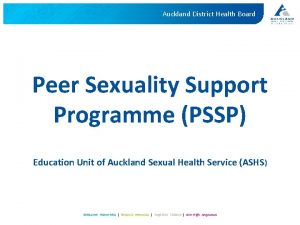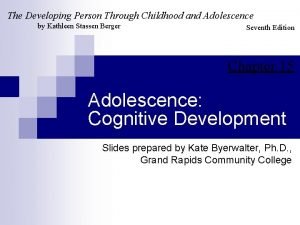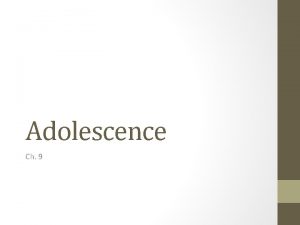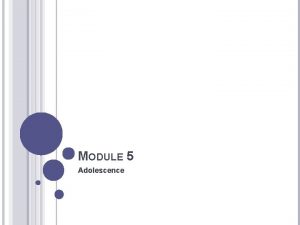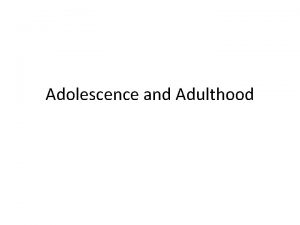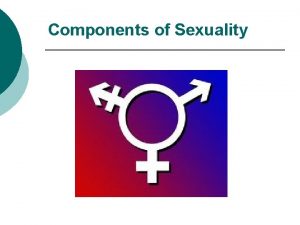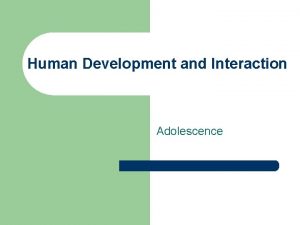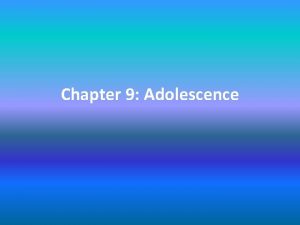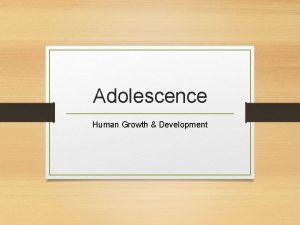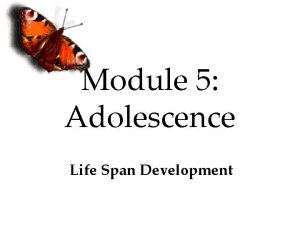Adolescence and Development Your Sexuality Sexuality refers to






















- Slides: 22

Adolescence and Development

Your Sexuality • Sexuality refers to everything about you as a male or a female. • The way you act • Your personality • Your feelings about being male or female

Development • During adolescence, you go through many changes… • Activity: Take out a piece of paper and fold it into 3 columns. Write “Mental, Emotional and Social” across the top of the three columns. Under each heading, write how you have changed since childhood in each category.

Development • Cognitive – Changes relating to the ability to reason and think out abstract solutions. • Adjusting to a new sense of self • Expanding verbal skills to express complex concepts • Establishing emotional independence from parents • Form more mature relationships with peers • Intellectual – Includes the ability to think abstractly, logically and at a higher level. • Use reason to evaluate information • Understand cause and effect • Ability to remember more

Development • Physical – Males and females will go through puberty, or the period of growth when a person begins to develop certain traits of adults of his or her own gender. • Puberty is controlled by hormones, or chemical substances that regulate the activities of body cells and organs. • Hormones are controlled by the Endocrine system, or the body system made up of ductless glands that secrete hormones into the blood. • The endocrine system is controlled by the pituitary gland, located at the base of the brain.

Puberty • Males – The pituitary gland controls the amount of testosterone produced by the testes. • Females – The pituitary gland controls the amount of estrogen and progesterone produced by the ovaries. • Both these control when and how puberty and male/female development of the reproductive system happens. • So let’s take a closer look at the mature reproductive systems of males and females.

The Female Reproductive System

Activity: Get into groups of 4 and list all parts of the female reproductive system you can…

Activity: Match your card’s part with your part’s function… When you find your partner, tape your cards to the board!

What are the functions of the female reproductive system? 1. Produce an egg. 2. Provide space for the egg and sperm to join…fertilization. 3. Provide the fetus with shelter and nourishment while developing. 4. Produce breast milk for baby after birth for nourishment.

Egg (Ovum) The female reproductive cell produced once a month (alternating) by either the left or right ovary.

Ovaries

Urethra No part in the reproductive process. It’s only function is to excrete urine.

Vagina

Cervix Located at the base of the uterus and bulges down into the vagina The location where sperm enter the uterus

Uterus Hollow, Flexible, Muscular organ about the size of a fist Provides a safe space for the baby to grow Expands many times it’s normal size to accommodate the baby’s growth

Fallopian Tubes Site where fertilization takes place Tubes that connect ovaries to the uterus Egg travels down during ovulation

Perineum The area between the vagina and the anus prone to tearing during childbirth

Fimbria

Uterine Lining Builds up once a month in preparation for a possible pregnancy If pregnancy occurs, the fertilized egg will come to rest in the rich lining If pregnancy does not occur, the lining and egg are shed during menstruation

Overview: The Female Reproductive System

Menstrual Period Occurs approximately every 28 days Time when menstrual fluids (blood and cells from uterine lining) leave the body Lasts approximately 3 to 7 days Average it begins is 12 to 15 years Let’s watch a recap of the Menstrual Cycle…
 Pretest: growth, development, and sexuality
Pretest: growth, development, and sexuality Teen brain development
Teen brain development Moral development in adolescence
Moral development in adolescence Middle adolescence physical development
Middle adolescence physical development Psychosocial development in adolescence
Psychosocial development in adolescence Physical development
Physical development Youtube youtube
Youtube youtube Moral development in adolescence
Moral development in adolescence Emotional development in adolescence
Emotional development in adolescence Chapter 10 sex gender and sexuality
Chapter 10 sex gender and sexuality Androgen insensitivity syndrome
Androgen insensitivity syndrome Umbrella term
Umbrella term Sexuality in advertising
Sexuality in advertising What are the four intertwining strands of sexuality?
What are the four intertwining strands of sexuality? Circles of sexuality
Circles of sexuality Definition of sexuality
Definition of sexuality Definition of sexuality
Definition of sexuality Which illustrates an emotional aspect of teen sexuality?
Which illustrates an emotional aspect of teen sexuality? Peer sexuality support programme
Peer sexuality support programme Base of uterus
Base of uterus Sexuality spectrum
Sexuality spectrum The developing person through childhood and adolescence
The developing person through childhood and adolescence Centration
Centration
